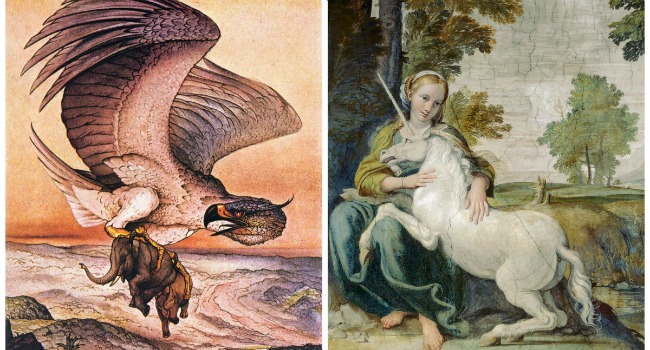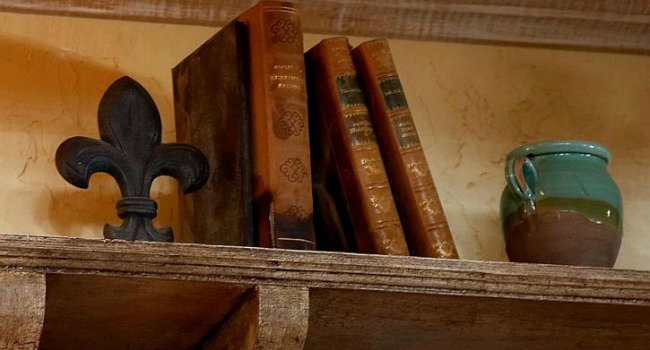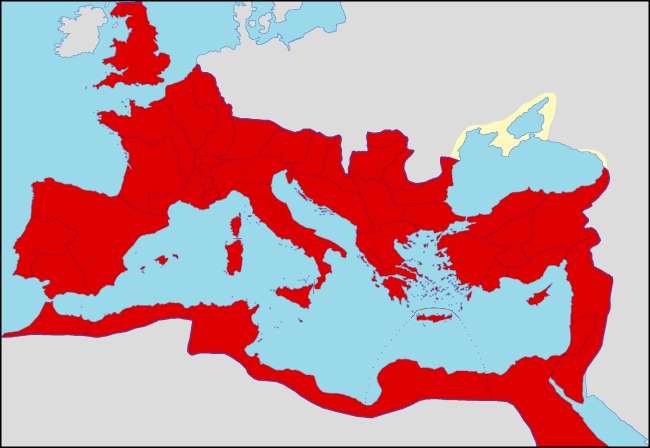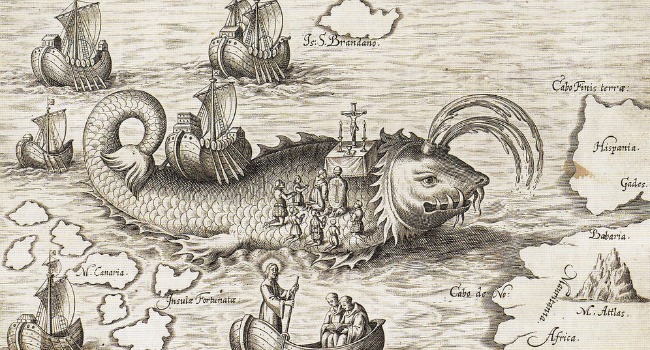In 1295, Marco Polo returned from a 24 year trading epic to China. His trip had taken him 14,000 miles (25,000km) around the world, from his birth town of Venice, through Baghdad and all the way across Asia. He visited dozens of great cities, many of which are now lost to antiquity, finally reaching the bustling trading city of Beijing in the east. After his return, he created a great epic of his travels. His epic spread quickly across Europe, each book meticulously and laboriously copied by hand and destined for the private libraries of the rich and powerful European elite. His wondrous tale became the basis for what all Europeans knew about the Orient for many years to come.
In it, he spoke of many weird and wonderful places he had visited. He spoke of creatures so wild and wonderful, they simply had to be seen. He spoke of dragons, unicorns and birds so large they could lift an elephant high into the air:
It was for all the world like an eagle, but one indeed of enormous size; so big in fact that its quills were twelve paces long and thick in proportion. And it is so strong that it will seize an elephant in its talons and carry him high into the air and drop him so that he is smashed to pieces;

His stories enthralled all those who read them. People could imagine massive birds, mythical serpents and biblical beasts. His works were entirely believable - except for one story. A story so far fetched that no man, king or peasant would give it credence. One story that beggared the belief of all those who heard of it.
Marco Polo told of how the Mongols used rocks instead of wood for heating and for cooking. He told of how they were collected and how they magically lit up, burning hotter and longer than the dried, dead branches fallen from the oldest trees. “You cannot burn rocks” the people said, and they ridiculed the story.
Marco Polo smirked. He knew, deep inside, that while a great many of his works were embellishments, this one was entirely true. The Europeans did not create industrial coal mines for another 600 years, significantly delaying the start of the industrial revolution and the entry of the West into the modern age.
Sometimes it pays to dig a little deeper to find out what your customers really need.
A young man walks into a hardware store looking to buy a hammer, but they are sold out. “What did you need the hammer for?” asked the proprietor. The man looked at him quizzically. “To hammer in some nails of course. Why else would I want a hammer?”

The store owner persists with another question. What were you trying to hammer in with the nails? “A shelf” the man replied. “Good” said the proprietor. Maybe these will be of use instead - we have a nail free wall glue in stock as well as free hanging shelves - would either be useful instead?
For centuries, Roman military might was unsurpassed anywhere in the world. Their empire spread from Britain in the west, all across Europe to Jerusalem in the east and south to the very edges of the Sahara. Countless more chieftains and kings provided them tribute in an effort to appease their vastly more powerful neighbour. Neither land, nor water nor the gods inspired fear in the Romans - they were the finest navigators since the Greeks, performing feats of seamanship unmatched for well over a thousand years after the end of the empire.

In 84 AD in what is now Scotland in the north of Britain, Agricola wrapped up a successful campaign against the Caledonians. For the first and only time, all of Britain was under the control of Rome. Only the land of Hibernia lay further to the west, a fertile land filled with lawless chieftains and savage tribes that would surely be of interest to the empire. But no Roman legion ever set foot on the land of what is now called Ireland.
They never conquered Ireland because they thought the world was flat. The Romans believed they were coming to the edge of the world. They believe that sea monsters lurked in the choppy voyage across the narrow sea between Ireland and England. The creative embellishments of their cartographers made sure of this. They feared falling off the edge of the world. They looked at their maps, and saw dragons and serpents and feared that they would never return if they took just one more voyage.

Succumbing to fear and ignorance might just mean you miss the most beautiful opportunities you get in life.